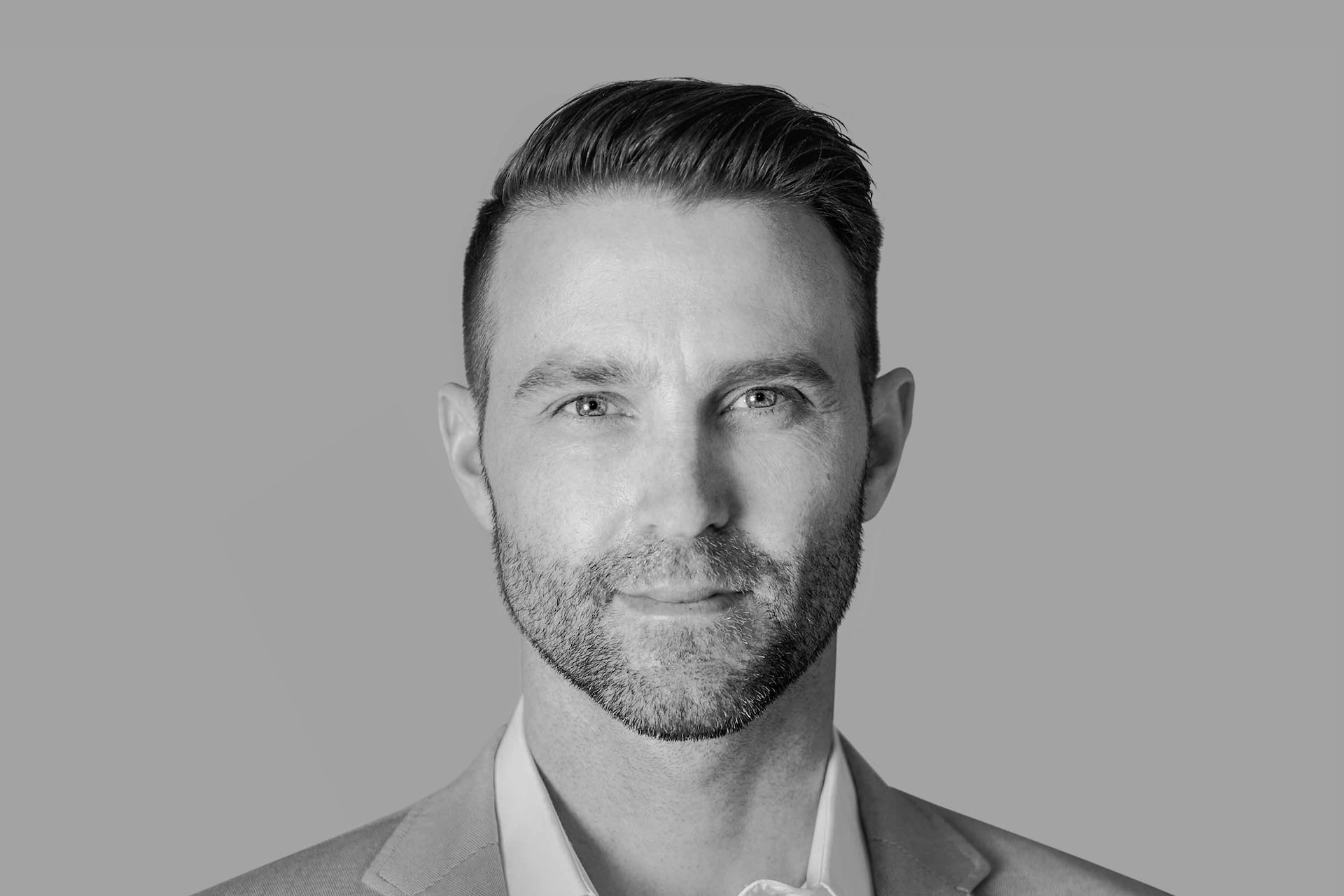Interview with Gabriel Jones from United States
The Callisto Protocol: Where Imagination Meets Mastery
January 5, 2024
Interview with Iffat Tariq from United States
January 9, 2024Gabriel Jones
Gabriel Jones, CEO and co-founder of Proprio, a medical tech company, innovates in surgery using AI and machine learning. With over a decade of leadership in emerging technology and intellectual property law, he specializes in AI, machine learning, and healthcare, driven by a passion to help others and bring new ideas to life.
Interview With The 2023 TITAN Innovation Awards Winner – Gabriel Jones
I am Gabriel Jones, the CEO and co-founder of Proprio, a medical technology company taking a unique approach to leveraging AI and machine learning in surgery.
I am an experienced technology leader with a passion for helping others and bringing innovations to life. I have more than a decade of leadership experience in emerging technology and intellectual property law, with specific expertise in AI, machine learning, and healthcare. I began my career in international trade in Japan and Washington, DC, and also worked on large-scale mergers and acquisitions on Wall Street.
Prior to co-founding Proprio, I worked with the Bill & Melinda Gates Foundation on global initiatives in health and technology, also helping Gates and the Microsoft leadership team with new technology development and evaluation. My passion for creating direct social impacts led me to new technology ventures where I helped commercialize several successful startups, ranging from biotech and med tech to AI and property technologies.
Throughout my career working in technology, I know that the potential for healthcare lies in healthcare revolution. I have seen firsthand the amount of data collection that is lost every day because of the lack of technology to capture it. Every surgeon’s method, workflow, and outcome are lost to a black box of wasted potential in the operating room.
Amidst the increasing adoption of AI in post-operative and diagnostic domains, only a handful have ventured into the realm of AI’s potential to be utilized intraoperatively. Seeing this as an opportunity to revolutionize how AI is used in surgery, I co-founded Proprio with the goal of creating an intraoperative system that harnesses the power of AI and advanced imaging to give surgeons a greater depth of anatomical information while exponentially increasing surgical accuracy and efficiency. I saw that surgery has the potential to operate more efficiently with a roadmap to success similar to how MapQuest was revolutionary to anyone who drove a car, and that is what inspired me the most.
Proprio is a medical technology company creating a new way of seeing in spinal surgery. Using advancements in light field, AI, and other emerging technologies, our flagship product, the Paradigm system, will be used to reach our goal of dramatically improving clinical and economic outcomes in healthcare. This technology enables the capture of advanced data and harnesses the potential of this data to enhance predictive and prescriptive intelligence in surgery, aiming to make surgery more efficient and accurate.
The Paradigm system is the first surgical navigation system to use light field technology in spine surgery for this use case. By capturing high-definition intraoperative images and fusing that data with preoperative scans, surgeons are able to “see” the surgical field in a completely new way. Using this technology, surgeons will no longer need to rely on a mix of time-consuming legacy tools (like CT or X-ray scans), that all pull attention away from the patient and reduce accuracy in the process.
I believe that being innovative means pursuing groundbreaking solutions that enhance surgical outcomes, streamline processes and ultimately improve patient care. It involves fostering a culture of curiosity, for example, I encourage my team to think beyond conventional boundaries and challenge the limits of technology. Innovation is not just about developing cutting-edge technologies but also about understanding the complex landscape of healthcare and addressing the needs of patients and medical professionals equally.
It's a commitment to continuously stay ahead of the curve, anticipate societal needs, and collaborate with the medical community to ensure Paradigm remains at the forefront of progress. I see innovation as a strategic imperative, a constant pursuit of excellence that aligns with our vision to redefine the future of surgery.
It’s commonly known across the spinal technology industry that spinal implants have become commoditized, and companies can no longer differentiate based on implants alone. Even though the global spinal implant and surgical device market is set to be worth $14.1 billion by 2028, innovation in implant technology has been stagnant in recent years. While it was once a rapidly expanding area of the industry, product differentiation has stalled.
Our Paradigm system breaks through the crowded medical technology industry by synthesizing data across multiple sensors, creating a real-time, interactive 3D canvas of human anatomy during spine surgery. Paradigm synthesizes views from multiple sensors and cameras, allowing surgeons to navigate anatomical and surgical environments by creating an interactive 3D canvas of human anatomy. As the patient is undergoing spinal surgery, surgeons can see spinal implant placements in real-time, throughout the procedure, without the need for repeated CT scans.
Coming up with the idea of Paradigm was initially not a clear concept. When Proprio first discussed the notion of VR in surgery, surgeons expressed the desire that the entirety of the surgical process be augmented and virtual reality. After hearing that feedback, we created a prototype that aimed to enable surgeons to operate virtually on a patient, even from thousands of miles away.
However, when it came down to presenting that initial prototype to the clinicians, their feedback was the opposite of what we expected: Overwhelmingly, surgeons expressed the desire for the entirety of the surgical process to be digitized.
After hearing what practicing surgeons think could be done to improve surgery, the Proprio team and I worked very closely with medical professionals to adapt to their feedback. Understanding the issues associated with the lack of intraoperative data, and then finding the opportunity to implement what surgeons wanted out of a surgical platform was all done by learning from the professionals who would actually be using Paradigm in the operating room.
This past year has been particularly crucial for Proprio’s success and the innovation process affects every aspect of the company. Building the technology and making sure that everything operates effectively is only part of the battle. One of the roadblocks I faced was having to navigate fundraising during a challenging financial environment as many startups faced layoffs and delayed development due to economic uncertainty.
To address these challenges, I developed a robust strategic financial plan that attracted investor confidence, resulting in successfully raising $43 million in a Series B funding round. This capital infusion came at a pivotal moment for Proprio as we used the additional funds to support our first in-human procedure. Currently, we are working to fuel the commercialization of Paradigm’s AI-powered system and bring the device to operating rooms around the country. This achievement not only ensured the financial stability of the company but also allowed for continued growth.
Everything that Proprio has accomplished has been due to the innovative minds of my fellow co-founders, Dr. Samuel Browd, Joshua Smith, and James Youngquist. Together, we have been able to each provide unique expertise that has been instrumental in Paradigm’s evolution.
Dr. Samuel Browd is a practicing surgeon at Seattle Children’s Hospital. He provides a special insight into the relationship between medicine and technology. Joshua Smith, a professor at the University of Washington, and James Youngquis, a computer vision specialist, worked together to integrate light-field technology into Paradigm’s operating room system.
In addition, Proprio’s marketing and regulatory teams play a crucial role in supporting all of the moving parts while upholding Paradigm to the highest standards.
Traditionally, only limited data is captured from operating rooms, including procedure start/stop times, blood loss estimates, and needle/sponge counts. Much of the surgical process has remained hidden to this point, trapped in a "black box." Before Paradigm, there were no solutions capable of comprehensively collecting and utilizing surgical data in a meaningful way.
This lack of transparency poses legitimate challenges for both patients and surgeons. Surgeons miss out on learning opportunities from their more experienced peers, hindering their professional growth.
However, with advanced medical technologies intentionally capturing pre-operative, intra-operative, and post-operative data, information is harnessed for machine learning, teaching, training, and performance analysis. As more data feeds into advanced AI and machine learning algorithms, surgeons achieve greater precision, real-time surgical decision support, and improved efficiency, safety, and reproducibility in complex procedures.
Breaking through the surgical "black box" allows teams to track operations in an unprecedented manner, understanding intentions, alterations, achievements, outcomes and opportunities for standardized enhancements with significant clinical and economic benefits.
My advice to fellow startups is to start by identifying investors who share their vision and clearly defining what distinguishes their company from others. I advocate for building products that are meant to have a long-lasting impact, I believe that with such products, investors will follow.
It’s also important to be flexible throughout the development process. Your first iteration of a design may be far different than the final result. Trust the process!
At Proprio, we are constantly working to create better working conditions for surgeons and better outcomes for patients. We aim to lead the way to permanent changes in the operating room and ensure patient safety.
We aim for guaranteed surgical equity, striving to provide every operation with a roadmap to success. This effort creates a level playing field, ensuring that each person experiences an improved postoperative life. While we are currently implementing this technology on a small scale for Paradigm, our ultimate goal is to expand its use to operating rooms worldwide.
I believe successful innovation requires a combination of leadership, adaptability, and an understanding of changing dynamics. Leadership is essential, to inspire a team culture that encourages risk-taking and learning from failures. Along with this comes flexibility and the ability to pivot quickly in response to feedback or changing circumstances are crucial, having that commitment to continuous learning is what has taken Proprio so far today.
Ultimately, successful innovations are made from a relentless drive to solve problems you are genuinely passionate about.
Winning Entry
Paradigm | 2023
Proprio’s flagship product, Paradigm, is the first spine surgical navigation platform to utilize light field imaging technology fused with AI …
(Read more at TITAN Innovation Awards)
Gabriel Jones
Proprio
Gabriel Jones, CEO and co-founder of Proprio, a medical tech company, innovates in surgery using AI and machine learning. With over a decade of leadership in emerging technology and intellectual property law, he specializes in AI, machine learning, and healthcare, driven by a passion to help others and bring new ideas to life.
Read more about this interview with Yanming Chen from the United States, the Silver Winner of the 2023 TITAN Innovation Awards.


